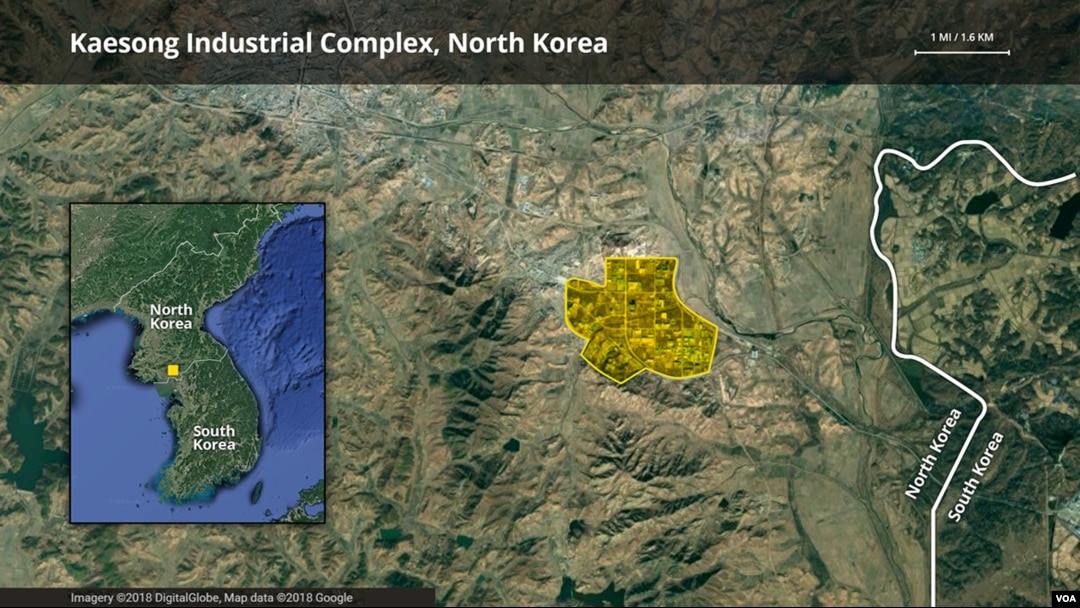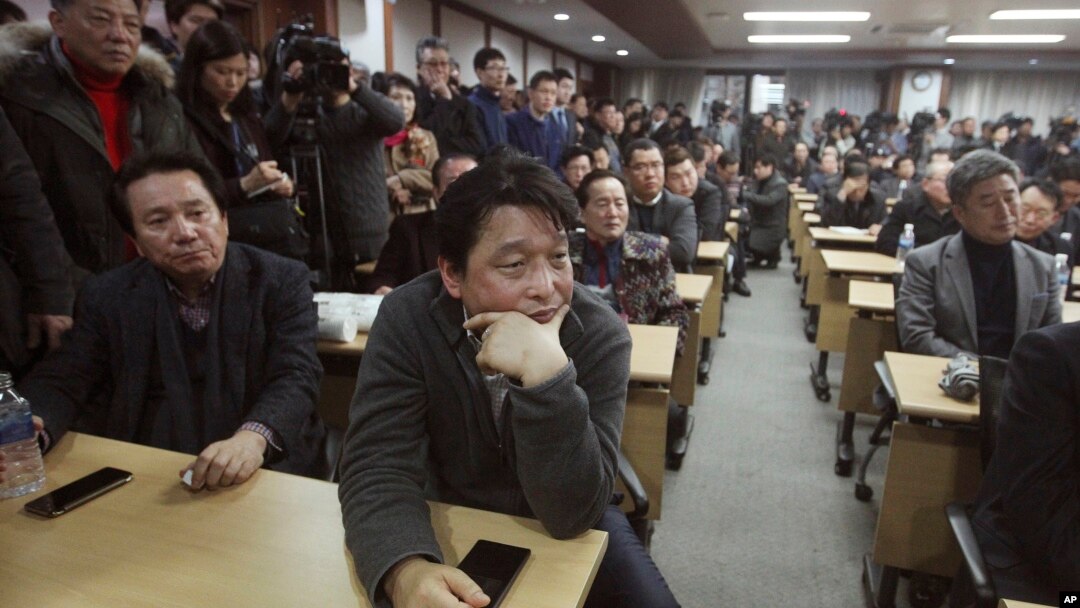South Korean businesses that operated in the Kaesong industrial complex in North Korea are anxious to visit the facility, to prepare for restarting operations, as expectations grow that progress toward denuclearization will soon bring about an end to economic sanctions.
“We need to check the conditions of the facilities, and it is essential to make decisions based on this condition, whether it (factory equipment) can be recovered in a short period of time, or whether to dispose of it and incorporate this into long term planning,” said Yoo Chang-geun, the vice-chairman of the Corporate Association of the Kaesong Industrial Complex.

Kaesong Industrial Complex
Kaesong on hold
The jointly run Kaesong complex, located inside North Korea about 54 kilometers northwest of Seoul, had employed over 54,000 North Korean employees at 124 South Korean manufacturing companies. It was shut down in early 2016 following a North Korean nuclear test.
Former South Korean President Park Geun-hye justified the decision to close down Kaesong by claiming that 70 percent of the estimated $100 million in annual wages and revenue generated was used to fund North Korea’s illicit nuclear and ballistic missile programs. The Kaesong workers wages were paid directly to the government in Pyongyang.
Some Kaesong business owners and supporters complained that the conservative Park administration provided no evidence to support its assertion, and voiced concern that closing the facility would disproportionately hurt hundreds of thousands of North Koreans in the region.
The more liberal administration of President Moon-Jae-in, who took office in May 2017, upheld the Kaesong closure as North Korea accelerated missile and nuclear testing.
Additional United Nations sanctions imposed in September 2017 prohibited financial joint ventures with North Korea, and banned clothing and textile exports that had been produced by a number of Kaesong companies.
The Kaesong industrial complex in North Korea is seen from the Taesungdong freedom village inside the demilitarized zone in Paju, South Korea, April 24, 2018.
Kaesong owners have not yet been permitted to visit the complex, and were told that reopening the jointly run facility is contingent upon the lifting of the U.N. sanctions on North Korea.
“Our government has consistently stated that it is impossible to reopen the Kaesong Industrial Complex while under the sanctions against North Korea, and we have not heard anything different from it,” said Yoo.
U.S. officials insist that sanctions will remain in place until North Korea makes significant progress to meet the complete denuclearization commitment made by its leader Kim Jong Un at the inter-Korean summit in April, and again in June when he met with U.S. President Donald Trump in Singapore.
Railway talks
Until sanctions are lifted, the South Korean government said economic engagement with North Korea would be restricted to research and development only.
On Tuesday the two Koreas held talks about improving and modernizing railway lines in the North to connect the Korean peninsula to Chinese and Russian rail systems and facilitate trade throughout Asia and Europe.
During the inter-Korean summit, President Moon Jae-in reportedly gave Kim a thumb drive containing a $35 billion rail infrastructure upgrade plan.
North Korea, with relatively low wages and vast mineral resources, could experience rapid economic growth, if significant infrastructure improvements and market-oriented reforms are implemented.
“The objective of infrastructure is to develop the regions along those highways and railways. So spillover economic effects are very important,” said Naoyuki Yoshino, the dean of the Asian Development Bank Institute (ADBI), during a recent event at the Foreign Correspondents Club of Japan.
U.S. Secretary of State Mike Pompeo is expected to soon travel to Pyongyang to begin negotiations to work out the details of the North’s broad agreement to end its nuclear weapons program in exchange for security guarantees and economic incentives that include the easing of sanctions.
Pompeo said this week that he would not put a timeline on expected progress, seemingly contradicting a senior defense official who said Washington would soon present North Korea with a timeline and "specific asks" for denuclearization measures to be taken.
Lee Yoon-jee in Seoul contributed to this report.


